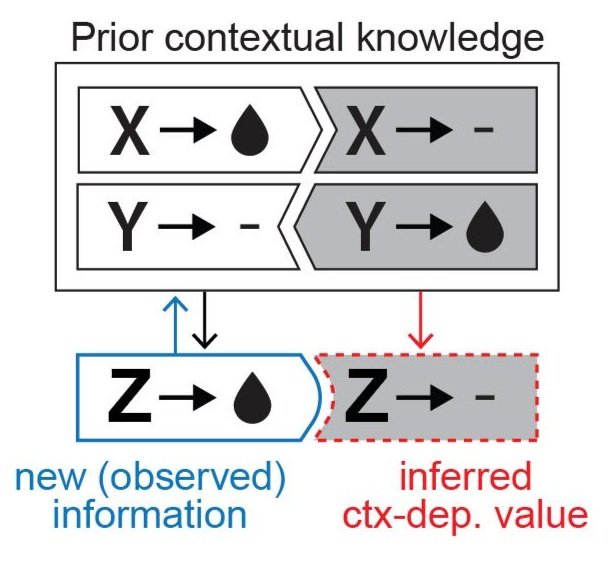CURRENT RESEARCH QUESTIONS
Contextual Regulation of Motivated Behaviors
Reward cues can be powerful motivational triggers, but their meaning is often ambiguous and context-dependent (what is good in one context is not necessarily good in another context). To solve this ambiguity, animals use contextual cues as “gatekeepers” in the retrieval of appropriate associative memories, ensuring context-appropriate responses to ambiguous cues. Current work in our laboratory is aimed at elucidating the neural circuits responsible for this contextual regulation of reward predictions and motivated behaviors.
Inference of Contextual Rules
Prior knowledge provides a template (or schema) for the acquisition of new information. Consistent with this idea, we showed that animals who previously learned a contextual rule for stimulus disambiguation were prone to infer a context-dependent meaning from new stimuli during new associative learning. Current work in our laboratory is aimed at elucidating the neural circuits responsible for this inductive inference of a contextual rule in reward prediction.
Reward Representations and Rule Selection
Reward pursuit typically involves multiple actions organized into logical sequences, and orchestrated by high-level, goal-specific, abstract “rules”. We study how animals can rapidly switch between different abstract rules, and the role that associative reward memories play in this process.
CURRENT TECHNIQUES
Custom Behavioral Assays, Optogenetics, Chemogenetics, Fiberphotometry, Pharmacology, Neuroanatomy (circuit-tracing), Immunohistochemistry, Brain-wide activity (c-Fos) mapping



